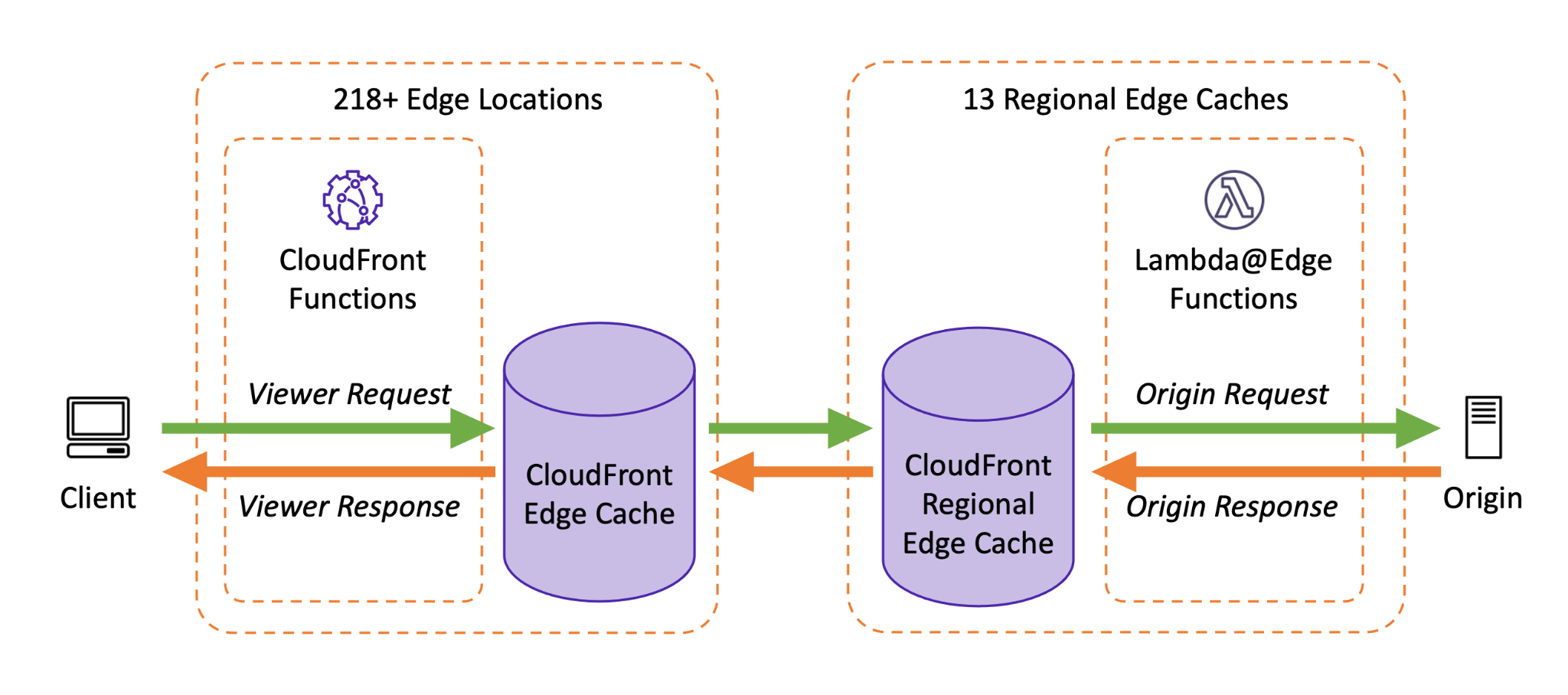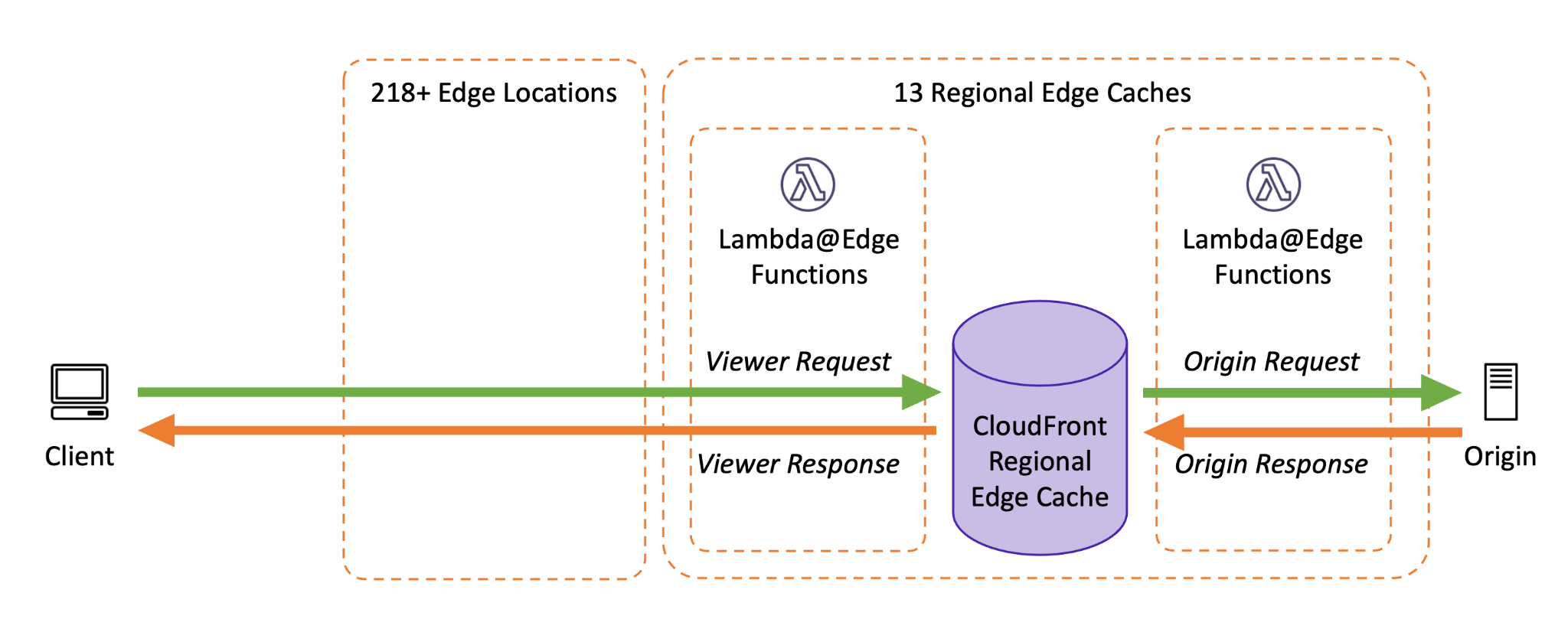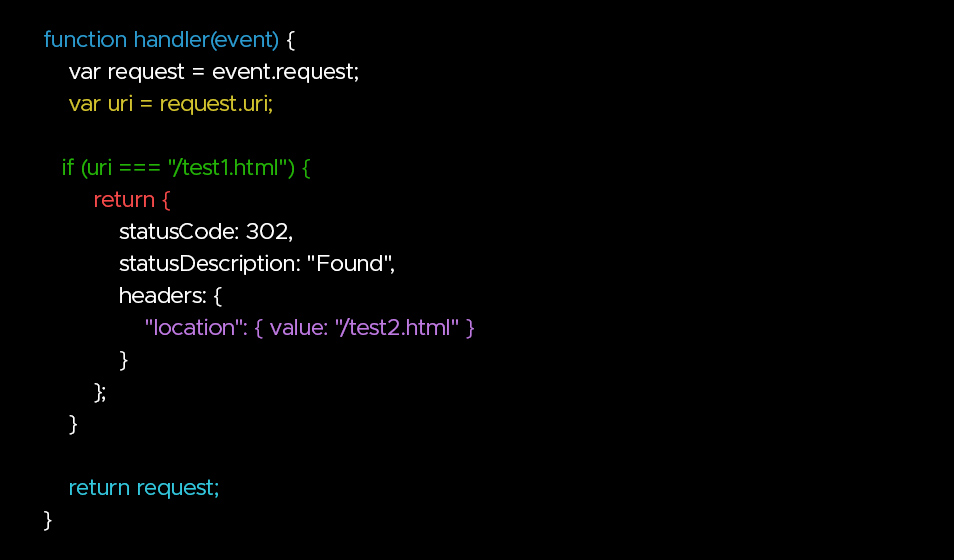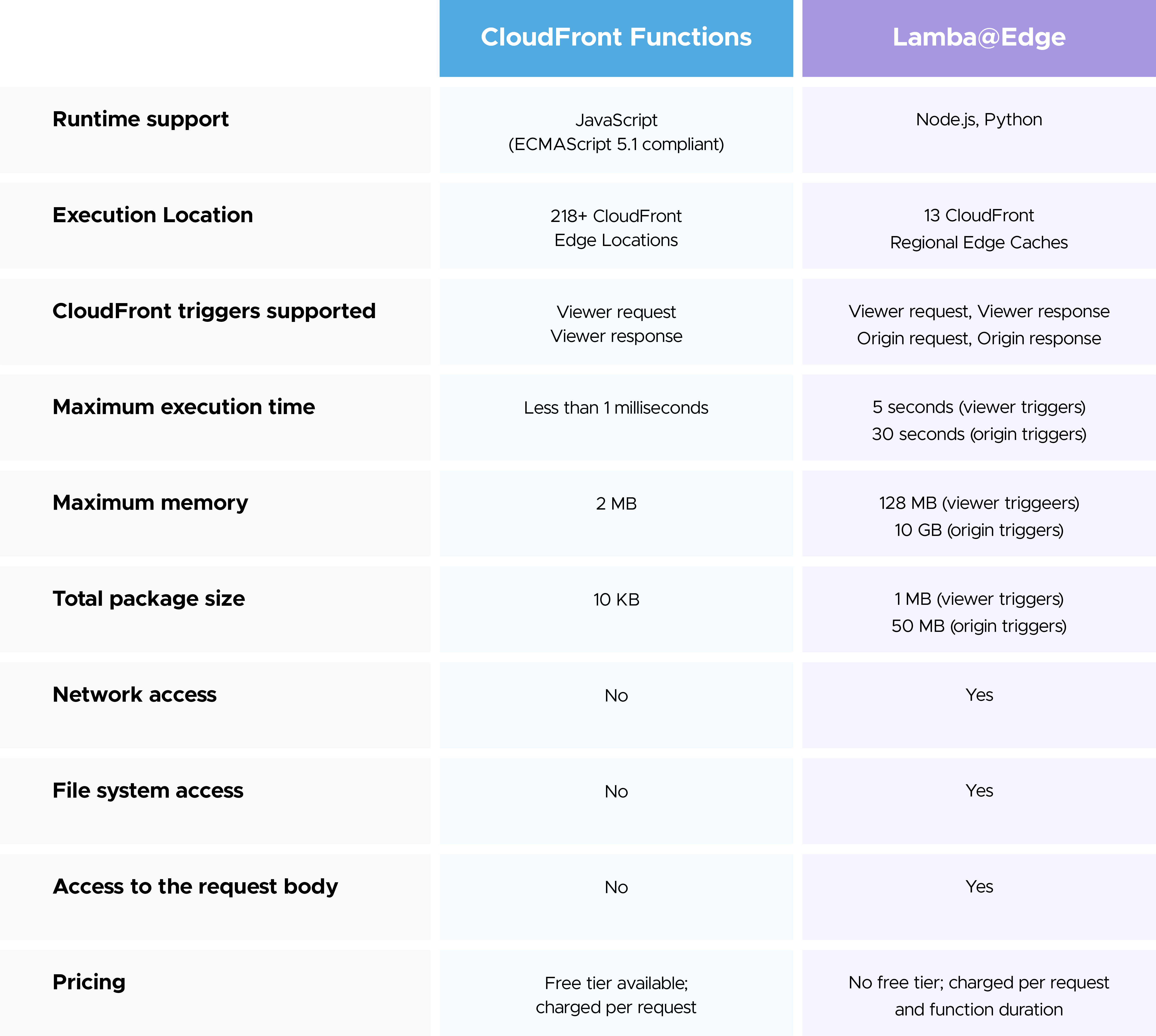Senior DevOps Engineer
Rohit is passionate about designing and implementing scalable, secure, and efficient DevOps solutions including automation pipelines, cloud architectures, and infrastructure as code.
Amazon CloudFront is a fast content delivery network (CDN) service that securely delivers data, videos, applications, and APIs to customers globally with low latency, high transfer speeds, all within a developer-friendly environment.
When building performant and globally distributed applications, Amazon CloudFront is a go-to CDN solution. One of the common use cases for CDN customization is URL redirection - think locale-based redirects, mobile vs desktop redirection, redirect/rewrite to a specific path, etc.
AWS now offers a more lightweight and cost-effective alternative: CloudFront Functions.
In this post, we’ll walk through:
CloudFront Functions are lightweight, JavaScript-based functions that run at the CloudFront edge locations. They’re ideal for simple, high-performance tasks that need to execute very quickly on viewer requests — such as header manipulation, redirects, and URL rewrites.
Unlike Lambda@Edge, which uses full-fledged AWS Lambda functions, CloudFront Functions:
Cloudfront Functions can be attached at 2 ends :

If you need some of the capabilities of Lambda@Edge that are not available with CloudFront Functions, such as network access or a longer execution time, you can still use Lambda@Edge before and after content is cached by CloudFront.

Let’s say if the user visits:https://example.com/test1.html, then they'll be redirected to https://example.com/test2.html


Ultra-Low Latency (Sub-Millisecond Execution)
CloudFront Functions are optimized for speed and run in microseconds. If you want seamless, nearly-instant redirection (e.g., /test1 → /test2.html), CloudFront Functions are measurably faster.
Significantly Lower Cost
CloudFront Functions are much cheaper than Lambda@Edge, especially at scale. With Lambda@Edge, you pay $0.60 per 1 million requests plus the execution time. With CloudFront Functions, you pay $0.10 per 1 million Invocations and nothing for execution time.
Instant Deployments (No Regional Propagation Delay)
Changes to CloudFront Functions propagate in seconds globally. With Lambda@Edge, changes must be replicated to regional edge locations, which takes more time than CloudFront functions
CloudFront Functions offer a powerful, lightweight, and cost-effective way to implement edge-level logic like URL redirection with minimal latency and near-instant deployments. For use cases that demand ultra-fast performance and simplicity—such as header manipulation, basic routing, or conditional redirects—they're an excellent alternative to Lambda@Edge.
While Lambda@Edge remains essential for more complex scenarios that involve origin access, extended execution time, or integrations with other AWS services, CloudFront Functions shine when we need blazing-fast performance at a fraction of the cost.
By leveraging the right implementation, we can build smarter, more efficient, and globally responsive applications with AWS. Whether we are optimizing for performance, cost, or both, CloudFront Functions will always be the best fit.
Speak with our advisors to learn how you can take control of your Cloud Cost